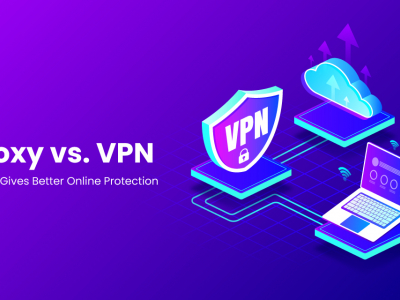When talking about internet security and privacy protection, two terms that are commonly discussed are VPN (virtual private network) and proxy. Both of these tools can hide your IP address and allow you to access content that may be restricted in your geographic region, but they do so in completely different ways.
First, let's talk about proxy. An Internet proxy, in effect, acts as an intermediary between you (or your device) and the Internet. When you send a request to the Internet, the request first goes to the proxy server. The proxy server then forwards the request for you. That way, the destination IP address is actually the IP address of the proxy server, not your device. Although this allows you to stay online and maintain some privacy, the overall level of protection offered by a proxy is not high.
On the other hand, VPN is a more powerful tool for maintaining privacy and security on the Internet. When you set up a VPN, an encrypted tunnel is created between your device and the VPN server. All your internet traffic is password-encrypted through this tunnel, which means that even if someone manages to steal the data, they won't be able to read its contents.
Creating this secure tunnel not only protects your data in transit, but also hides the IP address of your computer or device. Instead you inherit the IP of one of the VPN servers which may be located anywhere in the world. This feature is useful when you want to access geo-restricted content or when you want to hide your location information.
Finally, although both proxies and VPNs can hide your Internet activity and make it harder for others to track your Internet activities, VPNs offer more comprehensive and secure protection. In general, both options are suitable depending on your needs. While a proxy may be suitable for applications such as preventing P2P and accessing content from blocked sites, a VPN is recommended for general privacy protection and data security during internet activities.
Of course, in our country, these two tools are mostly used to access filtered sites or to change the IP in order to bypass sanctions, but on the Farsi VPN, users can access banking sites by changing their IP from a country outside of Iran. And the government, which is closed on foreign IPs due to some security precautions, can access and do their daily work.
